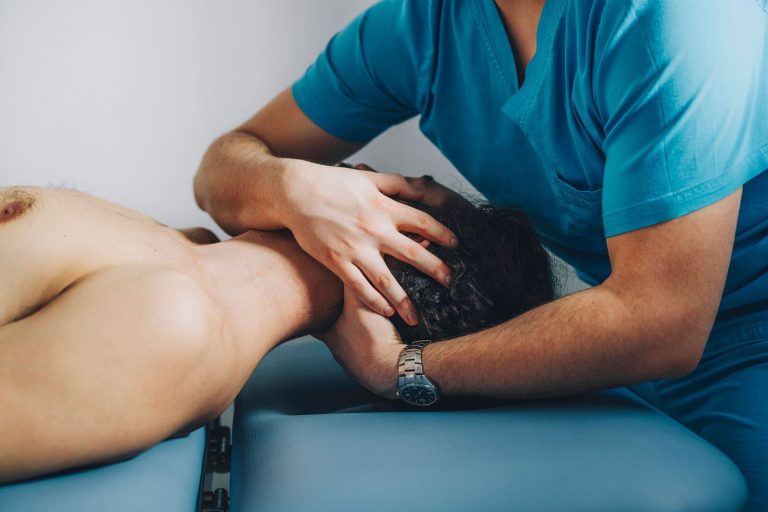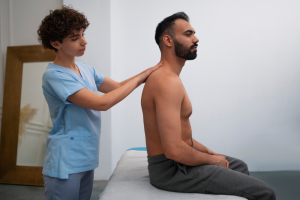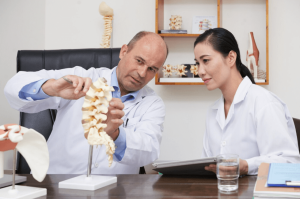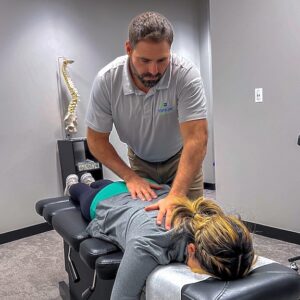When it comes to dealing with shoulder tendinopathies, many patients are discovering a less conventional yet highly effective approach to treatment: chiropractic care. Chiropractic services, often referred to as “chiro,” have gained popularity as a holistic and non-invasive alternative for managing a variety of musculoskeletal issues. In this article, we will delve into the reasons why an increasing number of patients are turning to chiropractors for help with shoulder tendinopathies, exploring the benefits, techniques, and patient experiences that make this choice a compelling one.
Understanding Shoulder Tendinopathies
Understanding shoulder tendinopathies is fundamental before exploring the benefits of chiropractic care in managing this condition. These conditions are not only common but can significantly impact one’s quality of life. Tendinopathies, in general, refer to a group of injuries and conditions that affect the tendons, which are strong, fibrous tissues that connect muscles to bones, facilitating movement and joint stability. In the context of shoulder tendinopathies, it’s the tendons surrounding the shoulder joint that are primarily affected. These tendons can experience various issues, including inflammation, damage, or degeneration.
Inflammation typically arises from overuse, repetitive movements, or excessive strain on the shoulder, leading to the tendons becoming irritated and swollen. Such inflammation can manifest as pain, discomfort, and restricted mobility, making everyday activities challenging. As the condition progresses, the tendons can sustain damage, which may include small tears or microtrauma. This damage can further exacerbate pain and discomfort, often impeding an individual’s ability to perform even basic tasks without discomfort. Left unaddressed, shoulder tendinopathies can lead to more severe complications, including the development of chronic pain, reduced joint function, and even potential structural changes in the shoulder joint. Thus, gaining a clear understanding of these tendinopathies is pivotal in appreciating the role that chiropractic care can play in addressing the condition comprehensively and effectively, offering patients the potential for relief, improved mobility, and a better quality of life.
Traditional Approaches vs. Chiropractic Care
Traditionally, patients seeking relief from shoulder tendinopathies often explore treatments like physical therapy, anti-inflammatory medications, and in some cases, surgical interventions. While these approaches can be effective, they are not without their drawbacks.
Chiropractic care, on the other hand, takes a different route to address the root causes of shoulder tendinopathies. It focuses on the relationship between the spine and the nervous system, aiming to optimize this connection to promote overall health. But how does this approach help with shoulder tendinopathies, and why do many patients prefer it? Let’s find out.
Non-Invasive and Drug-Free
One of the primary reasons patients turn to chiropractic services for shoulder tendinopathies is the non-invasive nature of the treatment. Chiropractors emphasize drug-free and surgery-free approaches. Instead of relying on medications with potential side effects or invasive procedures, chiropractors use manual manipulation and adjustments to help the body heal itself. This approach aligns with the preferences of many patients who seek natural, non-pharmaceutical solutions to their health issues.
Targeted Treatment
Chiropractic care for shoulder tendinopathies focuses on addressing the root causes of the condition. The chiropractor assesses the patient’s overall posture, spinal alignment, and musculoskeletal health to identify any issues that may be contributing to the shoulder problems. By pinpointing the source of the problem, chiropractors can provide targeted treatment to not only alleviate pain but also promote long-term healing and prevention.
Holistic Approach
Chiropractors view the body as an interconnected system where each part influences the other. For shoulder tendinopathies, this means that the issue may not be isolated to the shoulder joint itself. Chiropractors look at the bigger picture, considering how the spine, nervous system, and surrounding muscles affect the condition. This holistic approach often leads to more comprehensive and lasting results.
Personalized Care
Chiropractic care is highly individualized. Each patient’s condition is unique, and their treatment plans are tailored to address their specific needs and goals. This personalized approach can make a significant difference in the patient’s experience and outcomes, as it ensures that their treatment aligns with their unique circumstances.
Effective Pain Management
Chiropractic care is well-regarded for its effectiveness in managing pain. Patients with shoulder tendinopathies often experience significant discomfort and limited range of motion. Chiropractors use various techniques, such as spinal adjustments and soft tissue therapies, to alleviate pain and restore function. This pain management aspect is a key reason why patients find chiropractic care so appealing.
Chiropractic Techniques for Shoulder Tendinopathies
To get a better understanding of how chiropractic care works for shoulder tendinopathies, let’s explore some of the common techniques and methods employed by chiropractors:
Spinal Adjustments (Spinal Manipulation): While it might appear unusual to focus on the spine when treating shoulder issues, chiropractors believe that spinal misalignments can have a cascading effect on the entire musculoskeletal system. Spinal adjustments involve the precise application of controlled force to the spine to correct these misalignments, known as subluxations. By doing so, chiropractors aim to improve the overall function of the nervous system, which controls and coordinates all the body’s systems, including the muscles and tissues around the shoulder joint. When the spine is properly aligned, nerve communication is optimized, potentially reducing pain and discomfort in the shoulder. Spinal adjustments are typically performed with gentle, targeted manual manipulation techniques.
Soft Tissue Therapy: Soft tissue therapy plays a pivotal role in chiropractic care for shoulder tendinopathies. This technique focuses on manipulating the soft tissues surrounding the shoulder joint, including muscles, tendons, and ligaments. By addressing these soft tissues, chiropractors aim to alleviate tension, reduce inflammation, and promote the natural healing process.
Common soft tissue therapies employed in chiropractic care include:
Massage: Massage is a widely recognized soft tissue therapy that plays a significant role in chiropractic care for various musculoskeletal conditions, including shoulder tendinopathies. This therapeutic approach involves the skilled application of manual pressure and rhythmic movements to the affected area. The primary objective of massage is to address multiple aspects of the condition and promote healing.
First and foremost, massage therapy has the remarkable ability to relax the muscles in and around the shoulder joint. Through careful manipulation, massage therapists can target tense and overworked muscles, encouraging them to release their tight grip. This relaxation not only provides immediate relief but also helps to reduce muscle spasms and improve overall muscle function.
Another essential benefit of massage is its capacity to enhance blood circulation. As the therapist’s hands move across the affected area, they stimulate increased blood flow. This enhanced circulation carries vital nutrients and oxygen to the injured tissues, expediting the healing process. Moreover, it facilitates the removal of metabolic waste products, which can accumulate in areas of inflammation and contribute to pain.
Additionally, massage can play a pivotal role in addressing scar tissue formation, which is often associated with shoulder tendinopathies. Scar tissue can limit range of motion and perpetuate pain. Through carefully applied pressure and specific techniques, massage therapists can help break down scar tissue, making it more pliable and less restrictive. This can significantly improve the range of motion in the shoulder, allowing patients to regain mobility and function.
Myofascial Release: Myofascial release is a specific soft tissue therapy technique that concentrates on addressing the fascia, a connective tissue that envelops and interconnects muscles, bones, and organs throughout the body. The fascia is a vital component of the musculoskeletal system, and when it becomes tight or restricted, it can impede proper movement and contribute to pain. Myofascial release is designed to alleviate these restrictions and promote enhanced mobility, ultimately reducing discomfort associated with shoulder tendinopathies.
This technique is characterized by gentle stretching and the application of pressure to specific areas of the fascia. It’s important to understand that myofascial restrictions can extend beyond the local area of pain; they often have a broader impact on the body due to the interconnected nature of the fascial system. By targeting these restrictions, myofascial release seeks to restore optimal movement patterns and eliminate impediments to function.
Trigger Point Therapy: Chiropractors identify specific trigger points within the muscles that contribute to pain and discomfort. These trigger points are characterized by hypersensitivity and can radiate pain to other areas, including the shoulder. Through the application of precise pressure, chiropractors aim to release these trigger points, providing relief and improving function.
Exercise Rehabilitation: Chiropractors frequently prescribe exercise programs tailored to the individual’s condition. These exercises are designed to strengthen the muscles around the shoulder joint, enhance flexibility, and improve stability. By increasing muscle strength and coordination, patients can better support their injured shoulder, decrease pain, and reduce the risk of future injuries. These exercises are typically progressive and adjusted to the patient’s current abilities and progress in rehabilitation.
Postural Correction: Poor posture is a common factor contributing to shoulder tendinopathies. Chiropractors work with patients to address postural issues that may be exacerbating the condition. By making adjustments to the patient’s posture and offering advice on ergonomic improvements at work or during daily activities, chiropractors help reduce the stress placed on the injured shoulder. Proper posture not only aids in the healing process but also minimizes the risk of future injuries.
Nutritional Guidance: Nutrition plays a vital role in the body’s ability to heal and recover. Chiropractors often emphasize the importance of proper nutrition in the context of shoulder tendinopathies. They may offer dietary guidance to promote optimal healing and overall health. A diet rich in anti-inflammatory foods can help reduce inflammation in the shoulder joint, supporting the body’s ability to repair damaged tissues.
Lifestyle Counseling: In addition to the physical techniques, chiropractors may provide lifestyle counseling to address factors that could contribute to shoulder tendinopathies. This can include recommendations for ergonomics at work or during activities of daily living, guidance on how to avoid repetitive movements that exacerbate the condition, and tips for maintaining a healthy, active lifestyle that supports shoulder health.
Chiropractic care, with its non-invasive, holistic, and personalized approach, has become an attractive option for patients seeking relief from shoulder tendinopathies. Many individuals are drawn to the idea of addressing the root causes of their pain, rather than just masking the symptoms. By focusing on spinal health, nervous system function, and overall well-being, chiropractors aim to provide long-lasting solutions for shoulder tendinopathies, making this alternative treatment option increasingly popular among those looking for effective, drug-free, and surgery-free solutions.
Why Choose Evolve Chiropractic of Libertyville?
At Evolve Chiropractic of Libertyville, we take pride in being the go-to destination for chiropractic care in the Libertyville area. Our skilled team of professionals is dedicated to offering you a comprehensive range of chiropractic services to enhance your quality of life. Whether you’re seeking relief from chronic pain, looking to improve your posture, or simply striving to achieve a healthier, more balanced lifestyle, we are here to help. With a focus on patient-centered care, we are committed to delivering the best Chiro Libertyville has to offer, promoting your overall well-being and helping you evolve towards a pain-free, active, and vibrant life.
Evolve Chiropractic of Libertyville
755 S Milwaukee Ave Ste 127, Libertyville, IL 60048
(847) 984-2965





